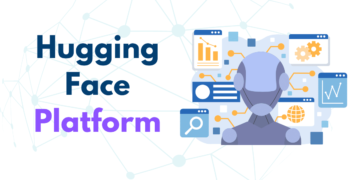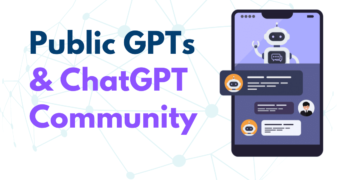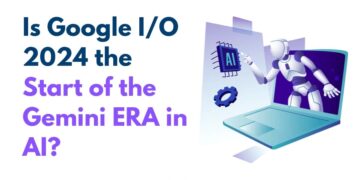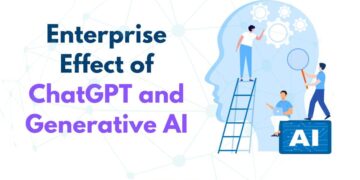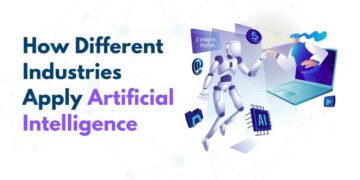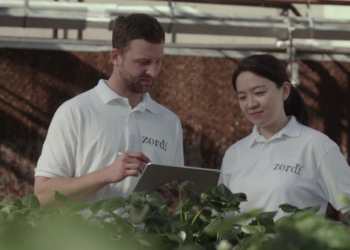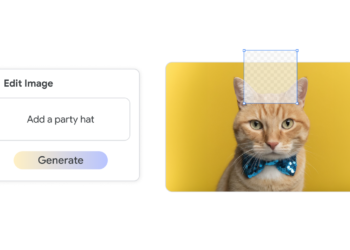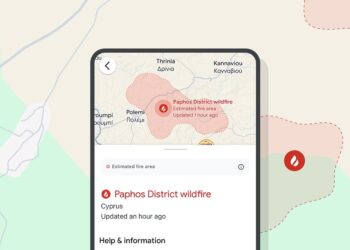[ad_1]
Synthetic intelligence may help tackle duties that vary from the on a regular basis to the extraordinary, whether or not it’s crunching numbers or curing ailments. However the one method to harness AI’s potential in the long term is to construct it responsibly.
That’s why the dialog about generative AI and privateness is so necessary — and why we need to help this dialogue with insights from innovation’s frontlines and our in depth engagement with regulators and different specialists.
In our new “Generative AI and Privateness” coverage working paper, we argue that AI merchandise ought to have embedded protections that promote person security and privateness from the beginning. And we advocate coverage approaches that deal with privateness issues whereas unlocking AI’s advantages.
Privateness-by-design in AI
AI guarantees advantages to folks and society, but in addition has the potential to exacerbate current societal challenges and pose new challenges, as our own research and that of others has highlighted.
The identical is true for privateness. We have to construct in protections that present transparency and management and deal with dangers just like the inadvertent leakage of private data.
That requires a sturdy framework from improvement to deployment, grounded in well-established ideas. Any group constructing AI instruments needs to be clear about its privateness method.
Ours is guided by longstanding information safety practices, Privacy & Security Principles, Responsible AI practices and our AI Principles. This implies we implement sturdy privateness safeguards and information minimization methods, present transparency about information practices, and provide controls that empower customers to make knowledgeable selections and handle their data.
Give attention to AI purposes to successfully cut back dangers
There are reliable points to discover as we apply some well-established privateness ideas to generative AI.
What does information minimization imply in follow when coaching fashions on giant volumes of information? What are the efficient methods to supply significant transparency of complicated fashions in ways in which deal with people’ issues? How do we offer age-appropriate experiences that profit teenagers in a world utilizing AI instruments?
Our paper affords some preliminary ideas for these conversations, contemplating two distinct phases for fashions:
- Coaching and improvement
- Person-facing purposes
Throughout coaching and improvement, private information resembling names or biographical data makes up a small however necessary aspect of coaching information. Fashions use such information to find out how language embeds summary ideas about relationships between folks and our world.
These fashions usually are not “databases” neither is their objective to establish people. The truth is, the inclusion of private information can truly assist cut back bias in fashions — for instance, the right way to perceive names from completely different cultures all over the world — and enhance accuracy and efficiency.
It’s on the software stage that we see each higher potential for privateness harms resembling private information leakage, and the chance to create simpler safeguards. That is the place options like output filters and auto-delete play necessary roles.
Prioritizing such safeguards on the software stage is just not solely essentially the most possible method, but in addition, we consider, the best one.
Attaining privateness via innovation
Most of as we speak’s AI privateness conversations are specializing in mitigating dangers, and rightly so, given the required work of constructing belief in AI. But generative AI additionally affords nice potential to enhance person privateness, and we also needs to reap the benefits of these necessary alternatives.
Generative AI is already serving to organizations understand privacy feedback for big numbers of customers and identify privateness compliance points. AI is enabling a new generation of cyber defenses. Privateness-enhancing applied sciences like artificial information and differential privateness are illuminating methods we are able to ship higher advantages to society with out revealing non-public data. Public insurance policies and trade requirements ought to promote — and never unintentionally limit — such optimistic makes use of.
The necessity to work collectively
Privateness legal guidelines are supposed to be adaptive, proportional and technology-neutral — through the years, that is what has made them resilient and sturdy.
The identical holds true within the age of AI, as stakeholders work to stability sturdy privateness protections with different basic rights and social objectives.
The work forward would require collaboration throughout the privateness group, and Google is dedicated to working with others to make sure that generative AI responsibly advantages society.
Learn our Coverage Working Paper on Generative AI and Privateness here.
[ad_2]
Source link

